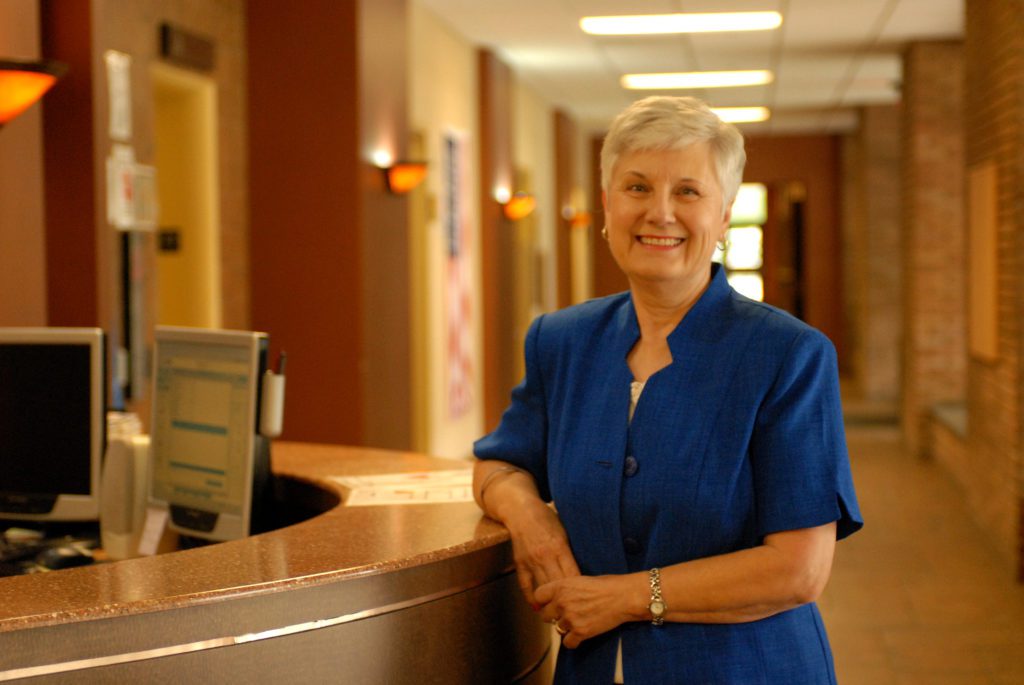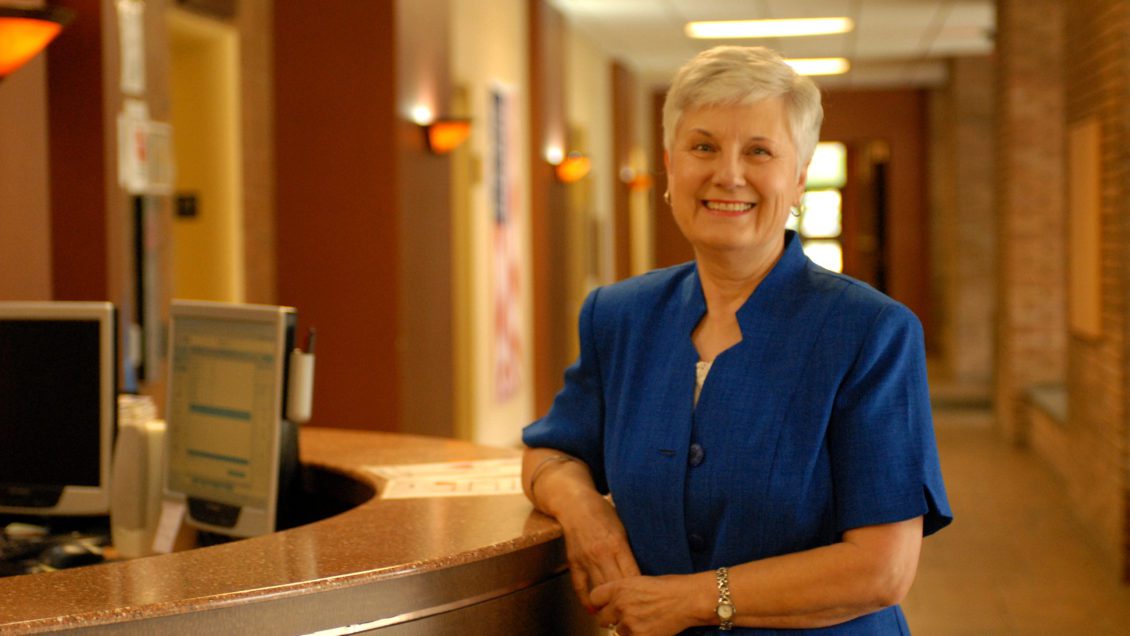A pioneer in risk management for the University, Linda Rice will retire with more than 40 years of service on December 31. She will be honored December 8 at an event planned at the Madren Center.
Rice had 17 years of experience working for private insurance companies before starting at Clemson on July 1, 1981 and brought that wealth of experience with her to view the University’s activities and facilities through a risk lens when she became Clemson’s first-ever risk manager.
“I am grateful to Linda for her 40 years of dedication to Clemson and the difference she made through her expertise,” said Chief Financial Officer Rick Petillo. “Linda’s dedication to Clemson, its students, faculty, staff and visitors is part of what makes the University such a special place.”
40 Years of Change
Clemson’s student enrollment was under 12,000 during Rice’s first year at the University. Four decades and seven presidents later, student enrollment has grown almost 130 percent, providing an ever-changing risk landscape for Rice to manage. The number of facilities throughout the state grew exponentially during the same period. It is little wonder Rice was given the address busyone@clemson.edu when electronic mail was introduced as a revolutionary form of communication several years after she started work here.
One can imagine the many significant changes Rice witnessed over her four decades at Clemson. Reflecting on the extensive measures the University has taken to provide academic and business continuity during COVID-19, Rice contemplated how difficult a pandemic would have been in her early days at Clemson.

“We have worked to put a human face in front of those having trouble by saying, ‘OK, here’s what we can do…here’s how we can help.”
“There were no Zoom meetings back then,” she said while reminiscing about the age of typewriters and fax machines. “Late in 1985, Clemson introduced a handful of its first word processors. How innovative it was back then to share one word processor between three departments! We scheduled our use of this invention much like meeting rooms are scheduled today – in 30-minute blocks of time.”
A few memories stand out from the thousands she’s collected at Clemson over the decades. For instance, soon after she took the job at Clemson, Rice became aware of an alarming situation. As she recalls, students wanted to wrestle a bear as part of their student leisure. After determining the bear was not toothless or clawless, Rice quickly prevented this risky student activity.
Rice has managed everything from securing insurance coverage of leased, off-campus housing during periods of enrollment growth to working with the South Carolina Department of Natural Resources to relocate alligators away from the Sandhill Research and Education Center in Columbia and coordinating insurance adjusters after 1981’s devastating Christmas Eve flooding of Sirrine Hall.
Over time Rice’s job got increasingly complex, but thanks to her guiding hand Clemson’s ability to manage risk became both a team effort and an institutional strategy. She helped usher in an era of improved risk management by serving on the Institutional Review Board for more than two decades and providing strategy from that perspective. All research projects had to be approved by the board which worked diligently to ensure safety protocols were followed and human subjects were protected.
A Legacy: Continuing the Level of Care
When recalling her time at Clemson, Rice said, “Everybody has been so gracious over the years to make sure we manage risk for the University. I will miss the challenge of the job and, of course, the people.”
Denise Godwin, the University’s current deputy director, will step into Rice’s role on Jan. 1, 2022.
Rice said she’s proud the University cares so much about the safety and wellbeing of its students, faculty, staff and visitors. “We have worked to put a human face in front of those having trouble by saying, ‘OK, here’s what we can do…here’s how we can help.’”
“Looking ahead, I know that same level of care will continue once I leave Clemson.”

